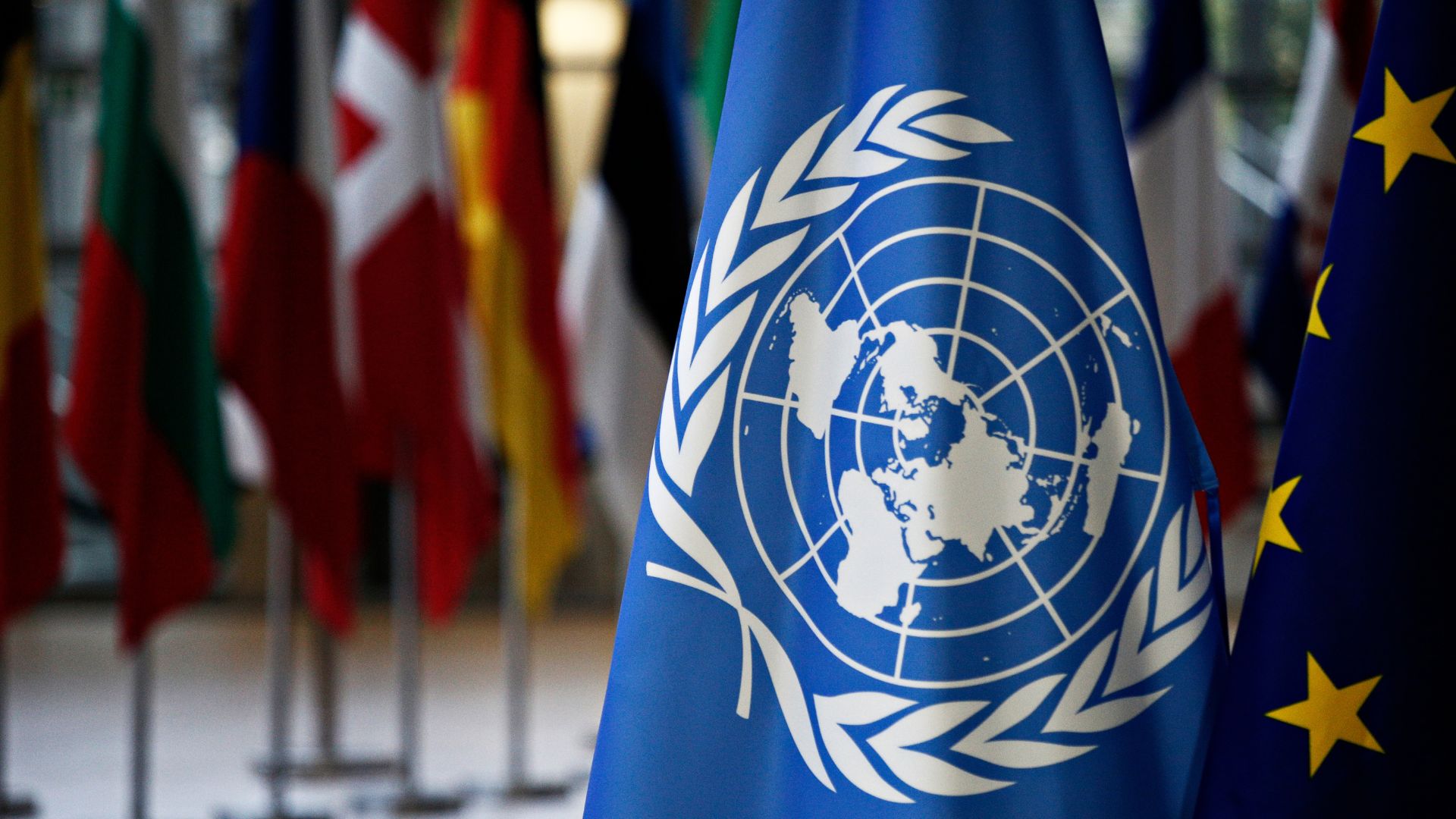
The United Nations is facing a growing financial crisis that could leave the organization unable to pay staff, suppliers, and peacekeeping forces by late 2025, according to multiple reports.
The situation follows a ballooning budget shortfall and a leaked proposal from the Trump administration to end U.S. contributions to the international body.
The UN is projected to face a $1.1 billion deficit by the end of 2025, according to a report from The Economist.
🚨🇺🇸BREAKING:
Following President Trump’s funding cuts, it is reported that the United Nations’ financial resources have decreased and it may run out of money in the coming months. pic.twitter.com/iAaJQCCJwy
— Update NEWS (@UpdateNews724) May 4, 2025
Trump’s Sovereign Wealth Fund: What Could It Mean For Your Money?
The organization is already contending with a $200 million deficit in 2024 and has reportedly notified its member states that its $3.7 billion operating budget has been reduced by 17%.
This Could Be the Most Important Video Gun Owners Watch All Year
The cuts are expected to result in a pause on new hiring, and the UN may be unable to meet salary and supplier payments by September 2025.
UN Secretary-General António Guterres reportedly warned in February that peacekeepers may go unpaid by mid-2025 if the financial trajectory is not reversed.
The funding crisis is being exacerbated by a proposal reportedly circulating within the Trump administration that would end U.S. funding for the United Nations, including its peacekeeping operations.
The leaked memo, dated April 2025, outlines a plan to halt U.S. contributions to the UN, NATO, and approximately 20 other international organizations.
It also proposes slashing U.S. humanitarian aid by 54% and global health funding by 55%, according to The Washington Post.
The proposal would require congressional approval, but President Donald Trump has already signed an executive order, issued on February 4, directing a withdrawal from UN membership and initiating a review of U.S. involvement in international institutions.
Under the UN’s structure, mandatory contributions from member states are assessed based on the relative size of their economies.
These contributions fund the organization’s core operations, including the General Assembly, human rights monitoring, and peacekeeping missions.
Delayed payments and noncompliance by member states have significantly contributed to the financial shortfall.
As of early May, only 49 of the UN’s 193 member countries had paid their dues in full for 2025.
The United States and China—currently the two largest global economies—are also the largest financial contributors to the UN.
Each is responsible for roughly 20% of the organization’s budget. However, China has reportedly begun falling behind on its payments as well.
If the U.S. ends its funding commitments as outlined in the leaked proposal, it would create a significant financial vacuum for the organization.
Without those funds, experts warn, the UN could face operational paralysis by the end of 2025.
The UN has not publicly commented on the internal U.S. discussions or the leaked memo but is expected to update its member states further on its financial outlook and potential contingency plans.
Meanwhile, the Trump administration has continued its broader reassessment of international agreements and institutions, part of a wider effort to reprioritize U.S. resources toward domestic and strategic national interests.
Connect with Vetted Off-Duty Cops to Instantly Fulfill Your Security Needs

![UN Budget Collapse Could Be Months Away After Trump Halts U.S. Contributions [WATCH]](https://www.right2024.com/wp-content/uploads/2025/05/UN-Budget-Collapse-Could-Be-Months-Away-After-Trump-Halts-750x375.jpg)



![Fans Shocked as Katy Perry Stops Concert After She’s Ambushed by Deranged Fan Onstage [WATCH]](https://www.right2024.com/wp-content/uploads/2025/06/Fans-Shocked-as-Katy-Perry-Stops-Concert-After-Shes-Ambushed-350x250.jpg)
![LA Protest Casualty? Dead Body Found as Riots Stretch Into Fifth Night [WATCH]](https://www.right2024.com/wp-content/uploads/2025/06/1749642627_LA-Protest-Casualty-Dead-Body-Found-as-Riots-Stretch-Into-350x250.jpg)


![Soros Network, Others Behind LA Riots [WATCH]](https://www.right2024.com/wp-content/uploads/2025/06/Soros-Network-Others-Behind-LA-Riots-WATCH-350x250.jpg)

![Minnesota Officials Panicking Over Derek Chauvin Pardon Speculation, Potential Unrest [WATCH]](https://www.right2024.com/wp-content/uploads/2025/05/Minnesota-Officials-Panicking-Over-Derek-Chauvin-Pardon-Speculation-Potential-Unrest-350x250.jpg)





